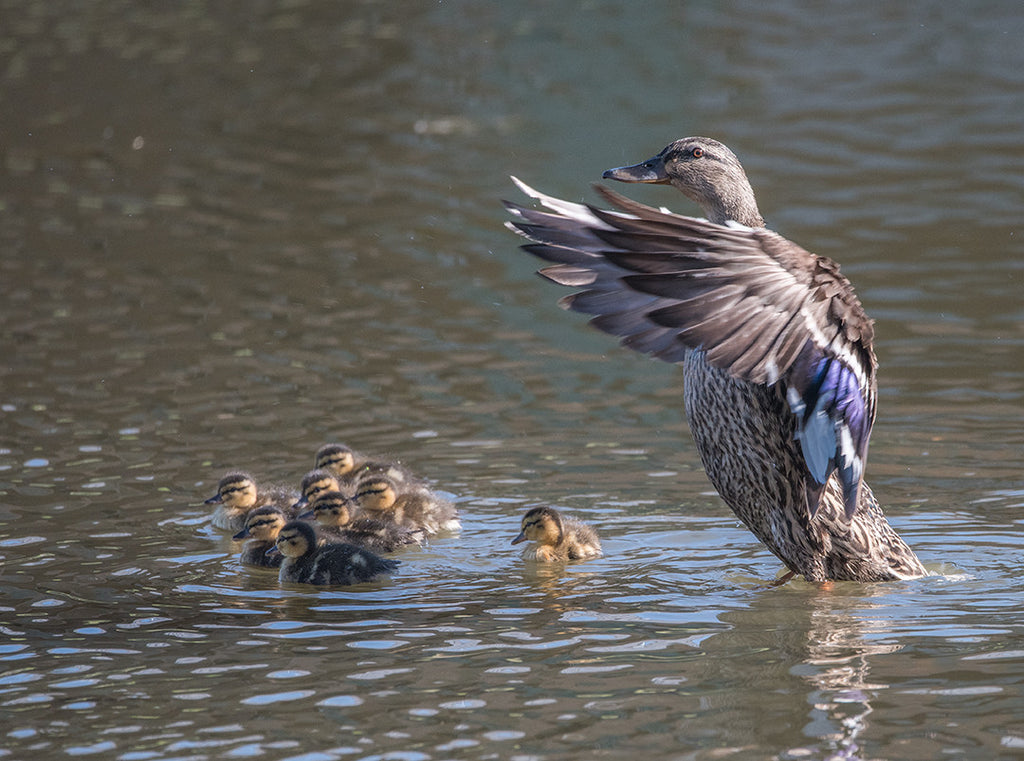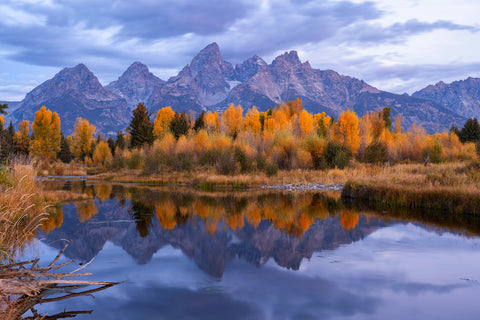And then one day the world is reborn.
On the cusp of summer, when time has passed through the equinox season into long days here in Montana, with a sun rising far north of where it did even a month ago, I spent a morning walking along the Yellowstone River, celebrating the new life that was all around and had seemingly appeared overnight from thin air.
It's fitting that it happens this way - how a new generation magically materializes. While the world has gone on about its business, Nature has done something quite remarkable and I've paid no attention until I spot the downy head of a young great horned owl in a cottonwood, sheared off during some long-ago windstorm. It already has the eyes of an adult, yellow, wise, and piercing, and some of its full feathers, too, though mostly it looks like a fuzzy ball with eyes and a beak.It watches me closely, probably the first human it's seen, then ducks into the hollow cavity where, for just a split second, I see another wing shift. At least two in there, I think, and I smile because I've always loved owls.

I'm tempted to stick around and see if more will peek out, but at least one knows I'm here - as their mother surely does, too - so I put the owls behind me and follow an irrigation ditch brimming with milky water, the year's first mountain snow melt. Clouded sulfur butterflies and grasshoppers launch into the air with almost every step, and I can smell the sweet scent of leaves and blossoms. Though autumn is my favorite season, I feel instinctual joy this time of year, an emotion carried from a time when winter was far harder on my distant ancestors than on me.
This ditch is a good place for wood ducks, off the main river and hemmed in by large trees, but the pair I see a hundred yards ahead are too small. I drop out of sight behind a large, uprooted cottonwood and take a circuitous route to where I believe I can belly crawl to within a few feet of whatever kind of ducks these are. Of course, by the time I'm leaning out over the water, covered in needle-like thistles, they've paddled downstream a hundred feet and flush before I get my eye on them. I'm lucky enough to catch the drake, a teal, in one frame, but the shot of the pair together will have to wait.

The irrigation ditch widens, joining an oxbow from the river that will hold water at least for the next six weeks while mountains more than two hundred miles away shed snow. Here, a pair of Canada geese, their gosling secured between them, swims toward me. I'm sure their brood is larger than one, but this morning they appear parents of an only child, necks low, eyes scanning, always on full alert. They hear my shutter and see the lens, my large, cyclops-looking telephoto, and reverse direction. There are plenty of things along the Yellowstone that would make short work of the young goose, but the adults are fiercely protective, and while they aren't sticking around they don't seem overly concerned with me.

I follow the oxbow to where it leaks out of the Yellowstone and find enough exposed river rock to skip across. If I'm gone too long, getting back may be a different story, as the water rises several inches during the day this time of year. All along the bank lies debris from the great flood of 2011 when record snow pack and heavy May rains combined to form a perfect storm of inundation. Massive trees are stacked together, wound tight with rusting barb wire, old car parts, and every other imaginable form of refuse the river regurgitated. It's like picking my way through an obstacle course, and after nearly falling a few times I decide it's time for a better route.
Just as I'm ready to bull-moose my way out of this tangled mess, ripples in a backwater stop me. I use my lens like a powerful monocular and see a pair of wood ducks. I've got the sun behind me, and have tried unsuccessfully for a couple of years to get a good shot of one of the skittish drakes. Persistence, I tell myself, dropping to my stomach, flicking a wood tick off my neck. I begin the slow crawl, contorting myself under, through, and over a log jam, continuing to send ticks spinning toward orbit, shuddering each time. It takes more than ten minutes to cover fifty yards, but I haven't heard the shrill cries wood ducks make when they flush, and I'm hopeful they're still nearby.
Patience, I whisper as I draw up on the backwater. Just wait. Stay where the view is good, have this behemoth of a lens at the ready, and don't move. I fight the urge to crane my head around to see all the backwater, but I hold in place. And then I see them, the hen first, followed by her colorful mate, and they're swimming right into my lane of focus. I hold my breath, wait for the drake to fill the frame, and gently press the shutter. As soon as I do, he explodes into the air, and I'm lucky enough to get shots of his wild wing waving and then a hint of blue feathers through a spray of water. Well worth a few hitchhiking ticks!

After the wood duck, I'm less interested in taking pictures than I am simply walking and enjoying the morning. I watch an immature bald eagle, sans white head, power into the sky from a dead tree downstream. His shadows flits over the river and a pair of mergansers dive together, a programmed reaction or coincidence I'm not sure. They bounce up a few moments later then flail off, running on water as they take flight.
The sun creeps higher and for the first time this year it feels hot out. At a bend where the water has licked away the soil below an especially large cottonwood, a beaver plunks into the river. It swims a tight circle, close to shore, and immediately crawls out fifteen feet from me. Odd, I think, trying to slowly raise my camera, that it wants back on shore so quickly. It senses movement and rather reluctantly moves back to the water. I wait for it to dive, then take a seat near where it vanished, camera ready this time.
The beaver surfaces like a sleek, brown submarine, appearing on the surface without disturbing it. I hold perfectly still as it glides toward me, holding stiller yet as it crawls out literally over one of my outstretched legs. It angles away from me at the water's edge, dragging its flat tail behind, then shakes like a wet Labrador retriever. I'm zoomed out as far as I can with my lens, shooting from the hip, hoping I've got something, when I hear the mews of baby beavers from a hollow in the bank below the tree. The one I'm watching wriggles its way out of sight into a muddy hole and the mewing stops. Carefully, not wanting to disturb her again, I slip away, ready for the hike back upstream to where I've parked.

I haven't realized how far I have drifted down the Yellowstone until I come around a bend and have to look upstream the better part of a mile to see the oxbow I crossed earlier. That's always the way it is - seems to take longer to get back than it does wherever I'm going. I keep picking up my feet and moving along, but there's a part of me that wants to stay. To spend the rest of the day sitting there on the bank, watching driftwood bob along, listening to the calls of geese and ducks, just waiting to see what the day offers up.
That part of me would never really be ready to leave, I think, wiping my brow at the oxbow twenty minutes later where, just as I suspected, the stones I crossed on have nearly disappeared. I'm eyeing them, trying to decide whether I can dash across without losing my footing or am better off just wading and dealing with wet feet, when a hen mallard and her brood swims into view. She rears up and flaps her wings as though she's herding her ducklings while I click pictures. Then I see a chick fifty or sixty feet away, doing entirely its own thing. It pays no attention to anything beyond the shore grasses it pecks at, swimming first one way and then the direct opposite, unwilling to be coaxed closer to its mother by her low quacking.
I take a few pictures of it, its fuzzy, yellow head large in my viewfinder, and am struck by what a friend of mine said recently of life - even knowing the science of it, there's something miraculous there. Sums it up pretty damn well.





Robin Wicks
Haven’t left a comment on the other blog entries because I wanted to get my thoughts just right. Your talent with words, pictures and what it takes to be able to do both with such eloquence leaves me in awe. The reverence you feel for the land is well conveyed. Amazing, thank you.